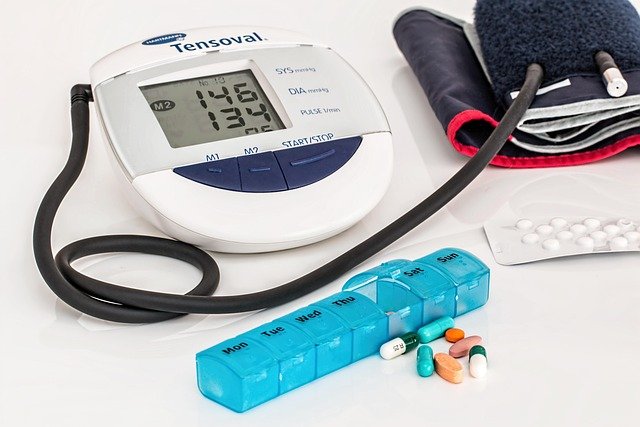Early Indicators of Heart Failure Every Adult in the United States Should Recognize in 2025
Heart failure affects millions in the United States and begins with subtle symptoms that are easy to miss. Recognizing early signs enables prompt medical evaluation and treatment. This article summarizes key early symptoms adults should know to protect their heart health.

Understanding Heart Failure and Its Effects
Heart failure arises when the heart is unable to pump sufficient oxygen-rich blood to fulfill the body’s demands. This condition does not imply the heart has stopped functioning, but rather that its weakened pumping capacity leads to fluid retention and diminished blood flow to vital organs. Heart failure may involve the left side, right side, or both sides of the heart and often evolves slowly due to chronic conditions like high blood pressure, coronary artery disease, or prior heart attacks.
Detecting heart failure early is critical since mild symptoms often precede more severe complications. Being aware of what to look for enables individuals and caregivers to seek medical attention promptly, which can enhance treatment success and improve quality of life.
Primary Early Symptoms and Signs of Heart Failure
Unusual Tiredness During Daily Activities
A frequent early symptom of heart failure is experiencing unexpected fatigue during routine activities such as walking, climbing stairs, or completing household chores. As the heart’s pumping ability weakens, muscles and organs receive less oxygen, resulting in tiredness even without significant exertion. Adults should be vigilant if normal physical activities suddenly feel more draining without other obvious causes.
Shortness of Breath When Lying Flat (Orthopnea)
Shortness of breath or difficulty breathing while lying flat is a common early sign. This occurs because fluid begins to build up in the lungs when the heart’s pumping efficiency decreases. Many patients find relief by sleeping elevated on pillows or in a reclined posture.
Mild Swelling in the Feet or Ankles
Another subtle indicator is fluid retention, often causing swelling (edema) in the lower limbs such as feet and ankles. This swelling may worsen by the day’s end or after extended periods of standing and should not be disregarded, particularly if it occurs without injury or other explanation.
Persistent Cough, Especially When Reclining
A chronic cough that intensifies when lying down can signal lung fluid accumulation related to heart failure. This cough may bring up frothy, white, or pink-tinged mucus. Although it is frequently mistaken for respiratory infections or allergies, its link to heart health should be considered when it persists.
Increased Urination at Night (Nocturia)
Nocturia, or frequent nighttime urination, can also be an early symptom of heart failure. During the day, fluid may collect in tissues; when lying down at night, this fluid returns to the bloodstream and is processed by the kidneys, causing increased urination.
Confusion or Problems with Concentration
Reduced blood flow from heart failure can lower oxygen supply to the brain, leading to mental symptoms like confusion, forgetfulness, or difficulty focusing. These signs are especially important to observe in older adults, who may show cognitive changes as an early indicator of worsening heart function.
Unexpected Weight Fluctuations in Seniors
Sudden or unexplained weight gain might indicate fluid retention, while weight loss could suggest poor appetite or declining health. Both should prompt older adults to seek medical evaluation, as these changes often reflect early heart failure.
Identifying Advanced Symptoms
Although this article emphasizes early signs, it is important to recognize that advanced heart failure can cause symptoms such as rapid or irregular heartbeat, chest pain, severe resting shortness of breath, and marked swelling of the legs and abdomen. Early identification and intervention may prevent progression to these more serious stages.
The Importance of Early Medical Assessment and Follow-Up
Anyone experiencing these symptoms—even without a prior heart diagnosis—should promptly consult a healthcare provider. Initial medical evaluation typically includes a physical examination, diagnostic tests such as echocardiograms, and potential referral to a cardiologist. Early diagnosis allows for better treatment and slows disease progression.
Regular monitoring of symptoms, body weight, blood pressure, and heart rate under medical guidance is advisable for those at risk. Being attentive to bodily changes empowers adults to recognize symptoms promptly and seek appropriate medical care.
Maintaining Heart Health to Prevent Worsening
Beyond symptom recognition, adults in the United States should adopt heart-healthy habits to lower the risk or delay the progression of heart failure. These habits include:
- Eating a balanced diet low in sodium and saturated fats
- Participating in regular physical activity appropriate to one’s ability
- Managing stress through relaxation and coping techniques
- Avoiding tobacco use and limiting alcohol intake
- Controlling chronic illnesses such as diabetes and hypertension
- Attending routine medical appointments for ongoing evaluation
Close collaboration with healthcare professionals helps develop personalized plans for prevention and treatment.
Timely awareness of heart failure symptoms is essential for improving health outcomes among adults in the United States. By understanding and monitoring these early warning signs, individuals can take proactive measures to protect their heart health and maintain their quality of life in 2025 and beyond.
Sources
-
American Heart Association. “Warning Signs of Heart Failure.” https://www.heart.org/en/health-topics/heart-failure/warning-signs-of-heart-failure
-
MedlinePlus. “Heart Failure.” https://medlineplus.gov/heartfailure.html
Disclaimer: This article is for informational purposes only and is not a substitute for professional medical advice. For personalized diagnosis and treatment, please consult a qualified healthcare provider.




